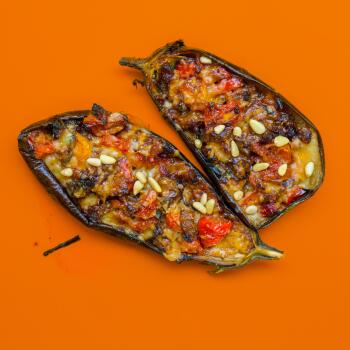
It’s Good to be Blue, that is, in a Blue Zone
 Dan Buettner is known as the longevity expert due to his extensive research to figure out why some people in certain parts of the world live so much longer than others. In the U.S., average life expectancy is about 78 years-old, with 90 years-old being the high-end when an individual is relatively free of chronic disease. People born in the “Blue Zones” regularly live to 100 and have the lower rates of morbidity and mortality across their life span. Buettner set out to learn more about the factors that make longevity possible. His research was sponsored by National Geographic and led him to five places across the globe: Ikaria, Greece; Loma Linda, California; Okinawa, Japan; Sardinia, Italy; and, Nicoya, Costa Rica. These areas are officially known as the Blue Zones.
Dan Buettner is known as the longevity expert due to his extensive research to figure out why some people in certain parts of the world live so much longer than others. In the U.S., average life expectancy is about 78 years-old, with 90 years-old being the high-end when an individual is relatively free of chronic disease. People born in the “Blue Zones” regularly live to 100 and have the lower rates of morbidity and mortality across their life span. Buettner set out to learn more about the factors that make longevity possible. His research was sponsored by National Geographic and led him to five places across the globe: Ikaria, Greece; Loma Linda, California; Okinawa, Japan; Sardinia, Italy; and, Nicoya, Costa Rica. These areas are officially known as the Blue Zones.
Buettner’s findings are well-published in numerous books and articles, and additionally can be viewed via TED Talks and the Blue Zones website. So, what do these people in the Blue Zones know and do, and what can we learn from them?
Buettner’s 9 key findings about people in the Blue Zones:
- They move naturally and regularly – in the U.S, people tend to schedule physical activity. People in the Blue Zones don’t train for marathons or join gyms. They incorporate movement throughout the day in their natural environment and around their community. They stay active by walking in their communities, riding their bikes to the market, gardening/weeding, and minimally use convenience household appliances.
- They have a sense of purpose – people in the Blue Zones wake up with a plan every day which gives them purpose. Buettner’s research concludes that this simple act can add seven years to your life.
- They down shift – stress is hard to avoid, but the people in the Blue Zones learn to down shift each day to reduce stress. Some took a nap, others engaged in prayer, while the Sardinians regularly engaged in “happy hour.”
- At meal time, they eat until 80% full – people in the Blue Zones eat until their stomachs are 80% full and follow the rule “eat like a king at breakfast, eat like a prince at lunch, and eat like a pauper at dinner.” Dinner was their smallest meal of the day and after dinner, they stopped eating.
- They follow a plant-slant diet – no Blue Zone area was completely characterized as vegetarian but in general, people ate large amounts of plants across their meals therefore making their diets “low meat” and in general, there was a trend to follow a Mediterranean diet. Beans, greens, and olive oil were consumed in large amounts. Meat and fish were ate sparingly. Diets are considered moderately caloric, complex carbohydrate centric with moderate amounts of healthy fats and protein. ** see next section for more on the Mediterranean Diet
- People drink wine – in all the Blue Zones (with the exception of the Adventists in Loma Linda, CA) people drink regularly and moderately (1-2 glasses of wine daily) with friends and family. The key is moderation and always in the company of friends and loved ones.
- They make family first – keeping aging parents and grandparents nearby or in the home, getting married, and investing time into children is valued by people in the Blue Zones. When children witness these practices, they were more likely to continue caring for aging family members and keeping the family unit intact creates a stable environment for everyone thereby reducing the chance of experiencing loneliness.
- They hang with the right tribe – being a part of a tight-knit social circle that engages in and promotes healthy practices increases the likelihood that the healthy behaviors will continue. Buettner’s concluded that health and happiness were contagious.
So how do we live longer better? If this all sounds a bit complicated, we can go back to Buettner’s findings and adopt Blue Zone practices into our daily routine. We can follow a Mediterranean diet, move more, hang out with a healthy-like-minded tribe that exudes good vibes and healthy virtues, choose a profession or vocation that gives us purpose, and take care of our family. In simple terms, “Eat well, live well, be well!”
More on the Mediterranean Diet
 The Mediterranean Diet was listed as the “#1 Best Overall Diet” by U.S. News in January 2019, therefore making it a great dietary approach to help people lose and/or maintain a healthy weight. The history of the Mediterranean Diet comes from the eating patterns and traditions common to the Mediterranean regions around southern Italy, Greece, Turkey, and Spain. Common eating patterns native to these regions are characterized by a diet in high fiber, lots of fruits and vegetables (especially leafy greens), plant-based fats (such a nuts, seeds, avocados, olives, and olive oil), whole grains, healthy proteins in moderation (especially fish and beans or grass-fed beef), and sometimes a glass of wine.
The Mediterranean Diet was listed as the “#1 Best Overall Diet” by U.S. News in January 2019, therefore making it a great dietary approach to help people lose and/or maintain a healthy weight. The history of the Mediterranean Diet comes from the eating patterns and traditions common to the Mediterranean regions around southern Italy, Greece, Turkey, and Spain. Common eating patterns native to these regions are characterized by a diet in high fiber, lots of fruits and vegetables (especially leafy greens), plant-based fats (such a nuts, seeds, avocados, olives, and olive oil), whole grains, healthy proteins in moderation (especially fish and beans or grass-fed beef), and sometimes a glass of wine.
Some of the benefits of the Mediterranean Diet are: (1) low in processed foods and sugar, (2) helps you to lose weight in a healthy way, (3) improves heart health, (4) helps fight cancer, (5) prevents or treats diabetes, (6) protects cognitive health and can improve mood, (7) might help you live longer, (8) helps you de-stress and relax, and (9) can help fight depression.
Try your favorite Mediterranean recipes at home with any of these ingredient combinations: avocado, beans, feta cheese, escarole, garlic, eggplant, chicken, extra virgin olive oil (gold standard: cold pressed oil), whole grains, artichoke hearts, capers, tomatoes, roasted red peppers, broccoli, lemon, cucumbers, sun dried tomatoes, and fish.
Katina Sayers is the owner/operator of Katina’s Nutritional Coaching Corner. She has an extensive background in health and education that began with degrees in exercise physiology, health and physical education, community health, and culminating with a doctoral degree in curriculum and instruction. She completed an advanced certificate of study in Integrative Nutrition and Health Coaching from the renowned Institute for Integrative Nutrition (IIN) in New York City. For the last four years, she has worked one-on-one with clients, presented a multitude of nutrition topics for large and small audiences, contracted with businesses to implement worksite wellness initiatives, and currently manages day-to-day food service operations at a local non-profit agency, as well as directs activities related to nutrition and health. Katina can be reached at ksayerswalker@gmail.com.
Latest News
Upcoming Events
Tully Free Library Turkey Trot 5K Run/Walk
All Day | 5872 Meeting House Rd, Tully, NY 13159
The Tully Free Library Turkey Trot 5K Run/Walk is held every year on Thanksgiving Day mornin…
Learn More ›Live Like Liam
All Day | Jamesville-DeWitt High School, 6845 Edinger Dr, De Witt, NY 13214
"Live Like Liam"... Celebrate life and community as you help fund important initiatives in L…
Learn More ›
Connect With Us
see the latest from Fleet Feet Syracuse